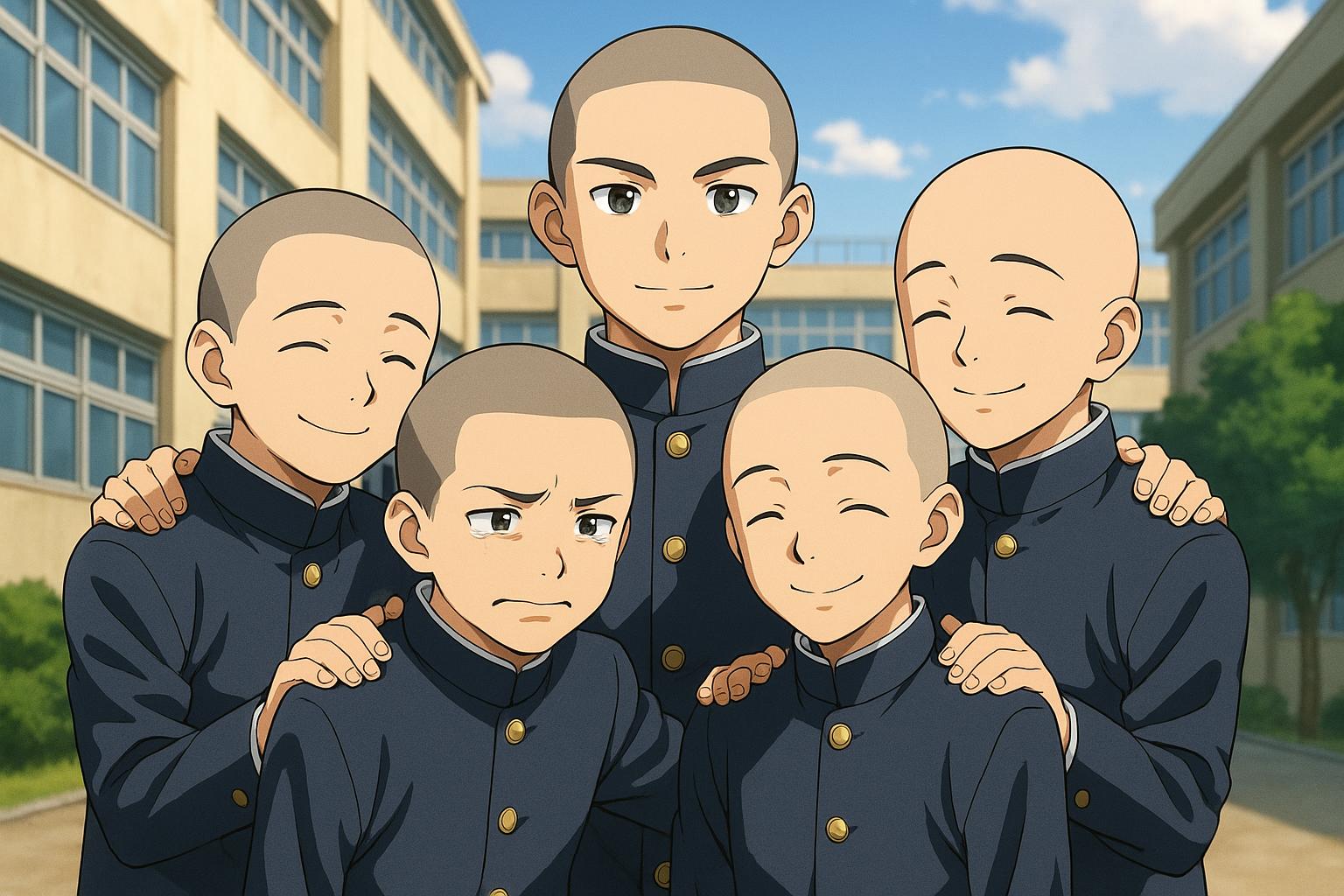A secondary school in Nottinghamshire, Newark Academy, faces considerable backlash after the reported isolation of students who shaved their heads to support a classmate battling cancer. This act of solidarity was sparked by a group of boys who aimed to show their support for a friend diagnosed with testicular cancer and undergoing chemotherapy. While their gesture was heartfelt, school authorities deemed the head shavings a violation of the school's uniform policy.
Parents have strongly criticised the school’s response, describing it as dismissive of the compassion exemplified by their children. One parent expressed outrage on social media, emphasising the importance of solidarity, empathy, and support during difficult times: “These things can only be learned in life, not in school. Shame on those punishing these young men for being decent human beings!”
The situation has drawn significant attention, not only from the local community but also from politicians. Johno Lee, an Independent Councillor, articulated his dismay upon confirming the reports, insisting that such stringent enforcement of rules is unjust when confronted with acts of genuine kindness. He stated, “These boys should not be punished for showing solidarity with a friend,” highlighting the potential damage to the school’s reputation.
In stark contrast, there have been several instances across the UK where schools have embraced similar gestures of support. For example, at Outwood Academy Hasland Hall in Chesterfield, a group of Year 9 boys shaved their heads for their classmate Liam, who is battling Non-Hodgkin lymphoma. Their actions not only raised nearly £2,000 for the Teenage Cancer Trust, but were also celebrated by staff and the school community for their empathy and solidarity.
Similarly, at a school in Doncaster, a boy faced criticism after he shaved his head in support of his friend battling cancer; however, the school later reinforced its commitment to supporting students who engage in charitable acts. This highlights a varied approach among different institutions regarding the balance between adhering to policies and recognising meaningful gestures.
Newark Academy, which serves over 1,100 pupils aged 11 to 18 and received a “Good” rating from Ofsted in its last inspection, defended its actions despite the backlash. A spokesperson acknowledged the students' compassion, asserting their commitment to maintaining the agreed standards and rules that are clearly communicated to all. They are currently reviewing how to reconcile these policies with exceptional circumstances, indicating an awareness of the complexities involved.
The teenager’s family has also set up a fundraising page to assist with hospital-related costs and to support his family during this challenging time. They praised the boys for their solidarity, stating, “The support from them has been absolutely amazing.”
Such incidents reflect a broader societal conversation on how educational institutions should respond to acts of kindness among students. As schools navigate this complex terrain, the challenge remains to uphold established policies while fostering an environment in which empathy and support for those in need can thrive.
Ultimately, actions like those taken by the students at Newark Academy and their peers across the UK underline the profound impact of solidarity in times of hardship, reinforcing the need for schools to consider the deeper lessons of compassion over rigid adherence to rules.
Reference Map
Paragraph 1: [1]
Paragraph 2: [1]
Paragraph 3: [1]
Paragraph 4: [2], [3]
Paragraph 5: [1], [3]
Paragraph 6: [1]
Paragraph 7: [1]
Paragraph 8: [1]
Paragraph 9: [1]
Paragraph 10: [1], [4], [5], [6], [7]
Source: Noah Wire Services
